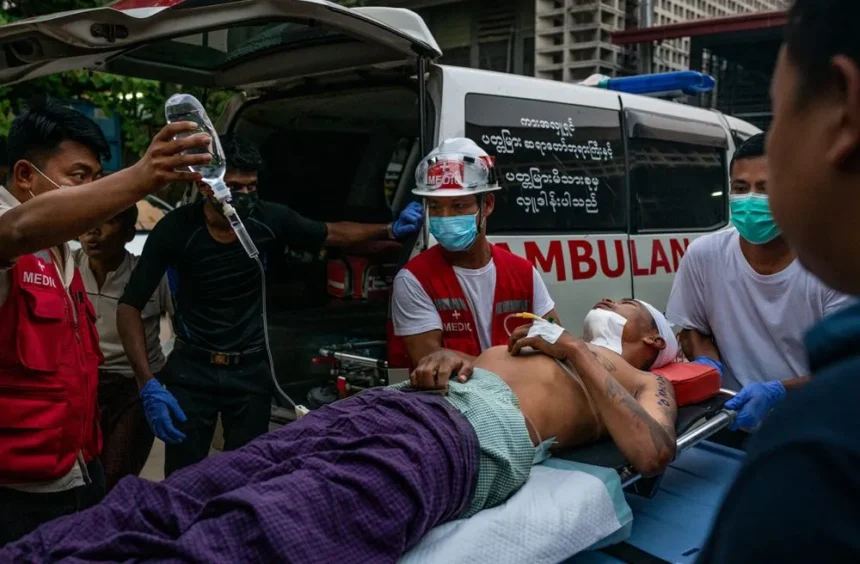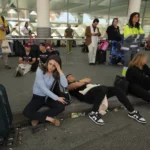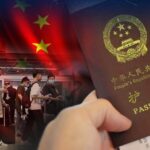Human rights activists report that years of attacks by Myanmar’s military on hospitals and health workers have made it harder to respond to the deadly March 28, 2025, earthquake, Human Rights Watch and Physicians for Human Rights said.
Even a month later, the military continues to block emergency services, especially in areas controlled by opposition groups or during their operations. Since the 2021 coup, the military has arrested or prosecuted over 872 health workers linked to the anti-coup movement, shutting down private hospitals that employ them.
These actions have sharply reduced medical services in places hit by the quake. Military and allied forces have damaged at least 263 medical centres and killed at least 74 health workers since the coup, according to Insecurity Insight, a Swiss nonprofit.
“Since 2021, the military has targeted healthcare in opposition-held areas, making a bad public health crisis even worse,” said Lindsey Green of Physicians for Human Rights. Green called on countries helping after the earthquake to push the junta to stop airstrikes and attacks on hospitals and to release detained health workers.
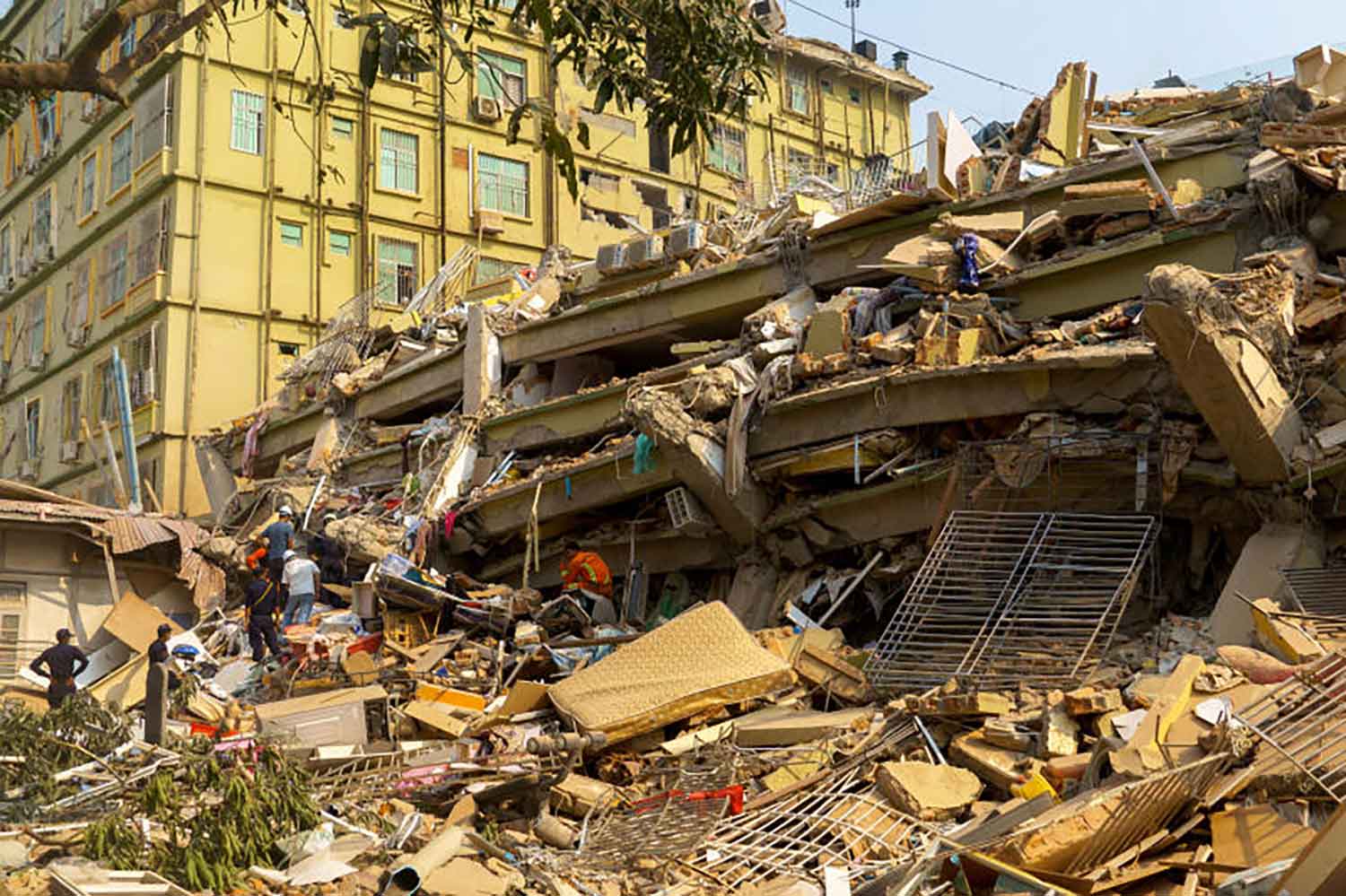
Reports show the 7.7 magnitude earthquake killed over 5,350 people, but US Geological Survey numbers suggest the final toll could top 10,000. The UN estimates 2 million now need help, on top of the nearly 20 million already needing aid before the quake.
Human Rights Watch and Physicians for Human Rights spoke with five health workers active in Mandalay and Sagaing, alongside others who have left Myanmar and aid workers. They described how years of attacks on healthcare have left the emergency response struggling.
The hardest-hit regions—Mandalay, Sagaing, Naypyidaw, Shan, and Bago—have faced years of harsh military crackdowns. In these areas alone, the armed forces have attacked at least 125 hospitals, arrested at least 258 health workers, and killed at least 32 since the coup, according to Insecurity Insight.
Myanmar’s healthcare system is stretched thin. Many health workers have fled to escape arrest and violence. One health worker, now living outside Myanmar, told Physicians for Human Rights that many were trained for emergency work but fled because of the crackdown, which has “seriously limited how fast and well we can respond.”
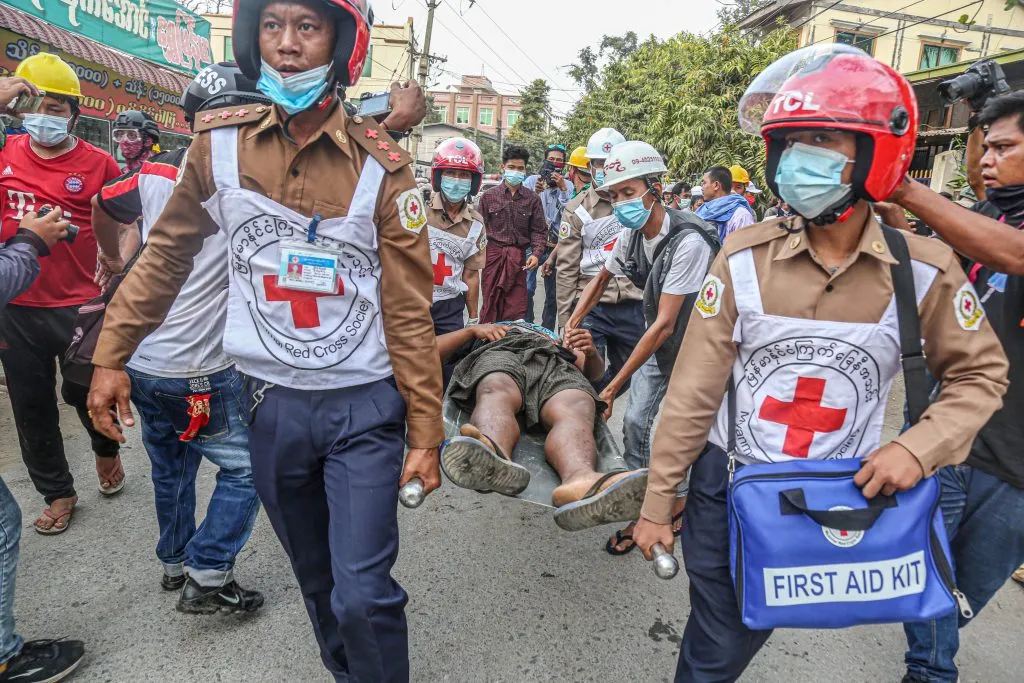
In Sagaing, more than 70 per cent of the medical staff have left since the coup. A doctor working in a mobile clinic said some areas now have no health workers at all, making it impossible to assess medical needs after the earthquake.
Others mentioned shortages of medicine, blaming the military for blocking pharmaceutical imports and refusing to lift these restrictions even after the disaster.
Ongoing internet blackouts make it even harder to share information and respond in many regions. Public hospitals left open cannot meet people’s needs. One doctor in Mandalay said many patients have suffered severe infections because delays at public hospitals prevented timely care.
Many health workers say they fear working in areas under junta control. One doctor in Sagaing said he and other anti-coup doctors cannot safely pass through military checkpoints, which keep them from reaching those who need help most.
“It’s heartbreaking,” he said. “I can’t go help even when my friends have lost their families.” Another doctor said his team cancelled travel to a district because it was too risky with an anti-coup doctor on board.
Since the coup, Myanmar’s military has committed war crimes in conflict zones and crimes against humanity against protesters. The military has carried out at least 160 airstrikes since the earthquake and has not allowed relief teams or aid workers safe access.
One doctor said his group had to turn back from a disaster zone because of ongoing fighting.
Donors and aid agencies say the military limits their work by delaying visas or only allowing them to operate in big cities and areas they control. An internal UN document from April 2 says the junta is keeping outside help from reaching areas they don’t control, leaving those places “largely without outside assistance.”
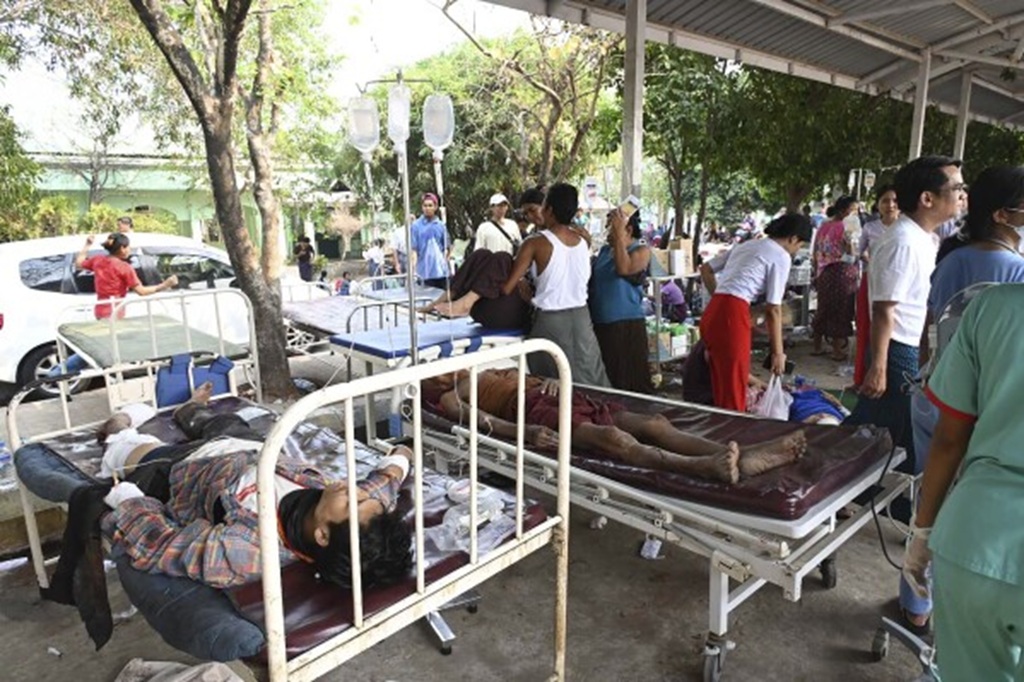
A doctor in Sagaing said military authorities have taken medicine that was being sent to opposition-held areas. UN special rapporteur Tom Andrews said he has heard about aid workers being stopped, questioned, and even extorted at checkpoints run by the military.
After an April 5 junta order that “rescue teams must seek prior approval and cannot act without it,” some local aid groups stopped helping because they feared sharing personal details with a regime that has criminalised local aid.
There are also reports that militia groups linked to the junta have blocked rescue teams from recovering bodies.
Aid agencies warn that landmines moved by the earthquake are a major danger, with at least 32 of the 58 worst-hit townships contaminated.
Even before the disaster, limits on aid and lack of access to health care increased problems like malnutrition, waterborne diseases, and preventable deaths. Over a million children missed important vaccines. Military actions and forced conscription have displaced more than 3.2 million people and spread diseases like tuberculosis and cholera.
Tens of thousands now sleep outside, exposed to extreme heat up to 44°C and without clean water. This raises the risk of heatstroke and waterborne illnesses, especially for older adults, people with disabilities, pregnant women, and children. Reports also show a rise in sexual and gender-based violence against women and girls.
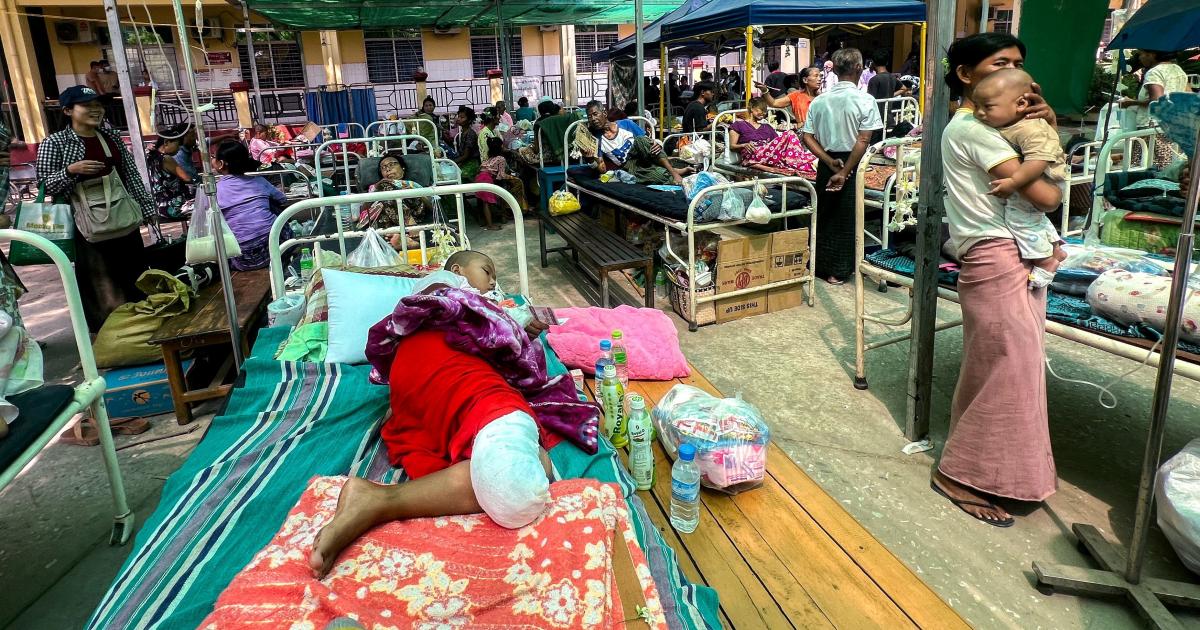
Foreign aid has dropped sharply. The UN is asking for an extra $241.6 million in aid, but the larger $1.14 billion plan is only 7.5 per cent funded. The drop is partly due to the US government’s sudden cut in foreign aid, reducing its share from 30 per cent in 2024 to just 3 per cent in 2025.
Three USAID workers sent to Myanmar after the earthquake were fired soon after arriving.
China, Russia, India, Turkey, and ASEAN countries have sent assistance teams. Other nations have pledged support, including China’s $137 million promise. Human Rights Watch and Physicians for Human Rights say these funds should go through independent aid groups to make sure help reaches those most in need.
The junta must respect the rights to life, health, and shelter under international law. Both the military and opposition groups are banned from targeting civilians or attacking medical sites and workers. They must allow fast and impartial aid to reach everyone who needs it and cannot refuse help for unfair reasons.
The UN Security Council should publicly address Myanmar’s crisis and demand that the junta allow aid without barriers and stop attacking hospitals, transport, and health staff.
“Myanmar’s junta has spent years destroying its health system and driving away doctors and nurses,” said Julia Bleckner of Human Rights Watch. “Countries that care about Myanmar should step up with more aid and work with local groups to make sure help reaches everyone who needs it.”
Related News:
Thai Army on High Alert as Intense Fighting on the Myanmar Border Erupts

Geoff Thomas is an award winning journalist known for his sharp insights and no-nonsense reporting style. Over the years he has worked for Reuters and the Canadian Press covering everything from political scandals to human interest stories. He brings a clear and direct approach to his work.




